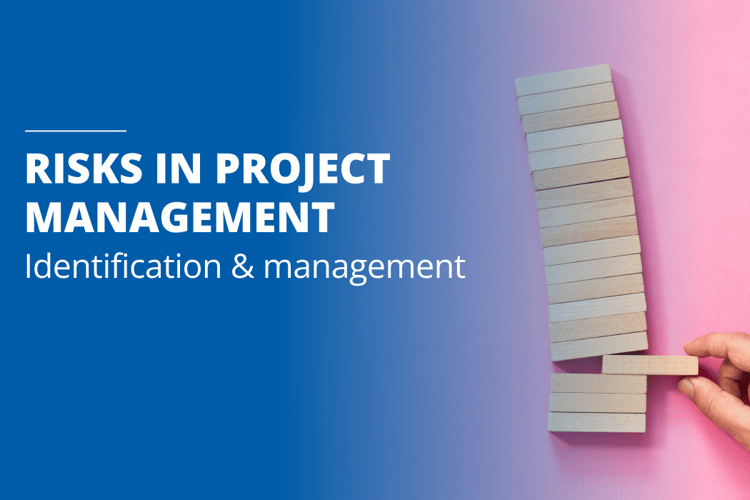Projects, regardless of their size and industry, are always associated with risks. These risks can significantly impact a project's success if not identified and managed effectively in time. In this article, we examine the most common risks that can occur in projects and how Can Do's software from Munich helps identify and manage these risks.

Common Risks in Projects
- Time Delays: Delays in meeting milestones and deadlines are common in projects, often caused by unexpected technical difficulties or unforeseen changes in project scope.
- Budget Overruns: These typically result from unforeseen costs during the project lifecycle, due to inadequate planning, unexpected technical challenges, or changes in project scope.
- Resource Shortages: Lack of necessary resources and skilled personnel can significantly delay or even derail a project, often caused by poor planning or unforeseen changes in the project landscape.
- Communication Problems: Inefficient or missing communication within the project team can lead to misunderstandings, delays, and errors. Clear and efficient communication is crucial for project success.
- Technological Risks: Issues with the technologies used, such as failures or incompatibility, can have significant impacts on the project. Technological risks must be identified and managed early to ensure project success.
- Scope Creep: Unplanned expansions of the project scope due to additional requirements can lead to delays and budget overruns. Scope creep is a common risk in projects that must be carefully managed.
- External Risks: Risks arising from external factors such as market changes or supplier problems can also jeopardize project success. These external risks are often hard to predict and require flexible and adaptive management strategies.
Risk management with Can Do software:
Can Do's software provides comprehensive features to identify, analyze, and manage project risks:
- Automated Risk Detection: Can Do uses advanced algorithms to detect potential risks early. By analyzing historical project data and current project dynamics, the software identifies patterns that indicate possible risks.
- Risk Assessment and Prioritization: The software provides tools for evaluating and prioritizing risks based on their likelihood and potential impact. This helps project managers focus on the most critical risks and plan appropriate measures.
- Transparent Resource Planning: Can Do enables detailed planning and monitoring of resource utilization. Bottlenecks and overloads are detected early, allowing timely countermeasures.
- Real-Time Dashboards and Reports: With real-time dashboards and comprehensive reporting options, the software continuously monitors project progress and risk situations. Project managers always have an up-to-date overview and can respond quickly to changes.
- Scenario Analyses: Can Do allows for "what-if" analyses. Project managers can simulate different scenarios and evaluate the potential impacts of risks. This supports informed decision-making and the development of risk strategies.
- Change Management Integration: The software integrates change management processes, systematically capturing and evaluating changes in project scope. This minimizes the risk of scope creep and keeps project execution on track.
- Communication and Collaboration: Can Do enhances communication and collaboration within the project team through central platforms and tools for information exchange. This reduces misunderstandings and increases team efficiency.
-2.png?width=1200&length=1200&name=Bildschirmfoto%202024-05-26%20um%2018.22.25%20(1)-2.png)
.png?width=1200&length=1200&name=Bildschirmfoto%202024-05-26%20um%2018.25.17%20(1).png)
Conclusion
Project risks are diverse and can significantly impact success. Can Do's software from Munich offers powerful features to identify and manage these risks. By combining automated risk detection, detailed resource planning, and effective communication tools, Can Do helps project managers detect and manage risks early, leading to greater project security and success.
Jetzt anmelden - Can Do Newsletter
Conny Düran is Head of Customer Service and Support at Can Do. She is therefore very close to the challenges of the prospective customers and the everyday project work of the users. In the Can Do blog, Conny writes about features of our software that are particularly popular with users.
Why Do Projects Fail? 5 Common Reasons - And How to Avoid Them
Projects are often complex, and even with the best intentions and a competent team, success can elude us. But why do so...
Cost-Cutting - Increasing Efficiency Without Additional Resources
Cost-cutting is currently at the top of the agenda for many companies. In the face of economic uncertainty and rising...
.png?width=200&height=80&name=CanDo%20Logo%20transparent%20(500%20x%20200%20px).png)
